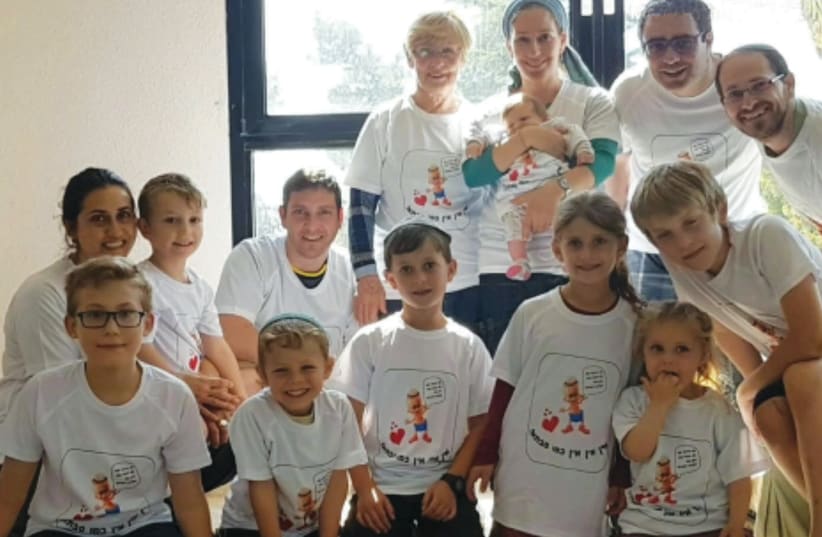Corona Patient 1,090 died on Shabbat, September 11, in the corona ward of Sheba Medical Center, Tel Hashomer. Those are the bare facts.
To me, she was more than a number. She was my friend and neighbor for 30 years. We had just moved into Sha’arei Tikva, perhaps the 200th family, and that first Friday morning, when the kids were running in and out of the house and pandemonium reigned, Suzie brought me a bouquet of flowers to wish me “Shabbat shalom.” We bonded quickly as did our kids, and we soon found ourselves attending concerts and lectures, going on short outings and sharing books. We were the loud family, hers was the quiet family. My late husband would sometimes blast his opera scenes with windows flung open while she would close hers and play a Chopin nocturne. We invited each other to children’s celebrations, and as her husband’s physical condition deteriorated in later years, we made a point of accompanying him in a manner that gave him a sense of dignity and independence, even if we were the last ones out of the theater.
When my husband died, we were overwhelmed with invitations for Shabbat meals that first year, but the children refused to eat at anyone’s home outside of Suzie’s. “She’s family. That’s different” was their response. When her nieces would visit from America we’d introduce my kids to them, and over the years, a number have continued those relationships.
My father and her husband died within a few days of each other, so oddly enough we ended up sitting shiva at around the same time. One morning, before the crowds descended, well before the corona era, I left my house early to walk over to comfort her. In the middle of the street I met Suzie as she was walking over to comfort me. We hugged, spoke briefly and returned to our respective shiva houses.
Suzie immigrated to Israel from America right after the Six Day War. She came to Israel on her own, with a university teaching degree in hand. Outside of an elderly aunt already living on kibbutz, no other family member followed in her footsteps over the years. She met her husband Elie Lepkifker in Israel and after marrying they went to Belgium, her husband’s birthplace, for a year, so he could complete his medical degree. He and his parents were Holocaust survivors, while Suzie’s parents were lucky enough to escape from Austria just in time.
Israel was Suzie and Elie’s home, their hope and their future. It was the country they came to help build and in which to raise their children. Today their children, grandchildren and great-grandchildren are living in Modi’in, Ramat Beit Shemesh, Ashdod, Jerusalem and Mitzpe Ramon. For more than four decades she taught English and prepared hundreds of teenage girls for their matriculation exams. She taught them how to write decent English, shared poetry and her love of reading with them, and spoke to them in soft tones, always with respect and honor.
She was more than a statistic to me, her friends and family. We have racked our brains to piece together her movements the week before they came to transport her to the hospital. She was careful. She wore a mask and requested visitors do so as well. She practiced social distancing and literally stopped seeing grandchildren and hosting for Shabbat. So how did this nefarious virus find her and kill her within less than two weeks?
She knew the end was near and managed to have short visits with two of her four children the day she passed away. I didn’t think she would die; I thought she would beat this virus, that she would emerge from the hospital and we could meet again for coffee, a schmooze, and exchange books. I texted her in the hospital to tell her I was counting on her coming home so we could spend Yom Kippur together as we did last year.
Our social klatches with coffee and cake, sharing heartaches and successes of our children, me regaling her with anecdotes about the grandchildren, all of this will no longer be shared. Patient 1,090 will be greatly missed. The void she left will cause our hearts to ache.
